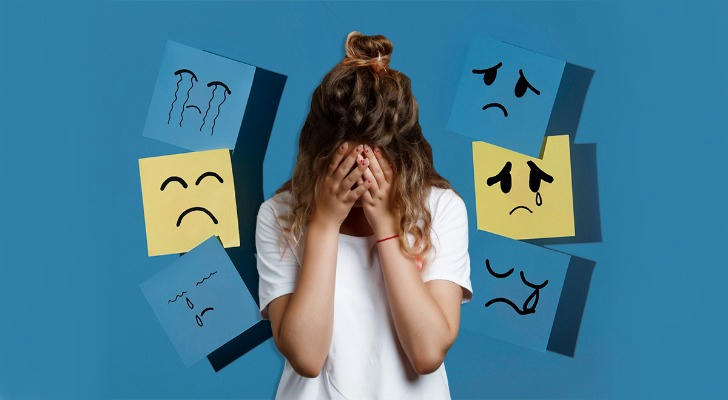The Crash Out Phenomenon: When Emotional Exhaustion Becomes a New Social Media Topic
Recently, a new term has been widely discussed on TikTok and X (formerly Twitter): Crash Out. It describes a state in which one's mental and emotional energy is completely depleted and suddenly "collapses," leaving one feeling powerless and depressed. Many people have commented on social media platforms that this describes their daily lives.
In an information-intensive and increasingly stressful world, this feeling of emotional exhaustion is becoming increasingly common. Psychologists point out that it may be related to depression, anxiety, or chronic stress. 💭

I. What is "Crash Out"?
Emotional Exhaustion: Feeling completely drained of energy, unable to even check your phone or respond to messages
Behavioral Shutdown: Sudden lack of desire for work, socializing, or even cooking or going out
Low Mood: Sudden feelings of emptiness or self-doubt
Psychologists warn that frequent occurrences of this state may be an early sign of mental health problems, requiring attention and intervention. ⚠️
II. Why are more and more people experiencing this state?
1. Information and Social Fatigue
The endless stream of information, comparisons, and conflicts on social media puts the brain under chronic stress.
2. Combined Financial and Life Pressures
Rising prices, rent pressures, and a demanding work schedule can all lead to emotional overload.
3. Lack of Emotional Support
Modern urban life is characterized by "lively online, lonely offline," lacking a stable emotional outlet.
Surveys by mental health institutions show that approximately one in five adults has experienced symptoms of depression or anxiety in the past year. Emotional health issues are becoming an increasingly common social concern.

III. Common Types and Treatments of Depression 🧠
Understanding the types of depression helps you more clearly identify the problem and get effective help more quickly. Here are some common types:
1️⃣ Major Depressive Disorder
Persistent low mood, loss of interest, and a significant decrease in energy can severely impact daily life and work. ⚠️
2️⃣ Clinical Depression
- Psychotherapy, such as cognitive behavioral therapy (CBT), helps adjust negative thought patterns.
- Medication, such as antidepressants, helps restore the balance of neurotransmitters in the brain.
- Lifestyle interventions, such as regular sleep and exercise, and improved nutrition, can help alleviate symptoms.
3️⃣ Seasonal Affective Disorder (SAD)
This condition often occurs during the fall and winter months when sunlight is insufficient, and is characterized by low mood, lethargy, and increased appetite.
4️⃣ Postpartum Depression
This condition occurs in the weeks or months after childbirth, accompanied by low mood, crying spells, anxiety, and even feelings of inadequacy in caring for the baby. 👶
If you experience these long-term symptoms while Crash Out, it's best to seek professional help as soon as possible. 🆘
IV. How to Manage Yourself?
If you're feeling emotionally drained, these tips may help:
Reduce information bombardment: Set aside 2–3 hours of "offline time" each day
Start with small, manageable tasks: Tidy up your room, get some sunshine, take a short walk ☀️
Journal your moods: Use a notebook or app to identify when you feel down and what triggers your mood
Try breathing or meditation exercises: Even just 5 minutes a day can significantly reduce stress
Seek professional help: If your low mood persists for more than two weeks, it's best to talk to a psychologist or therapist.
V. Useful Mental Health Resources
If your emotional distress is interfering with your life, consider reaching out to the following professional support channels:
Suicide & Crisis Lifeline: Available 24/7 in English and Spanish
NAMI HelpLine (National Alliance on Mental Health): Provides counseling and resource links for mental health counseling
PsychologyToday.com: Search for a psychologist or therapist near you
💡 Tip: Mental health is just as important as physical health. Paying attention to it early and seeking help promptly can help you get your life back on track.
🌿 A Gentle Reminder for a Weary Heart
"Crash Out" isn't just a buzzword; it reminds people to be aware of emotional burnout and the potential risk of depression. When you're emotionally drained, give yourself time to rest and adjust, and seek professional help if necessary. Taking care of your mental health is the most important investment you can make in yourself.
